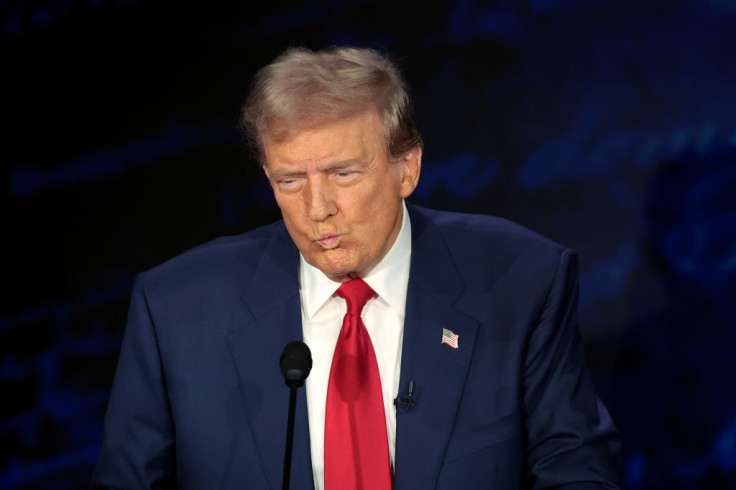
Donald Trump exhibited signs of cognitive decline and short-term memory loss, according to Richard A. Friedman, a renowned psychiatrist and director of the psychopharmacology clinic at Cornell University's Weill Cornell Medical College.
In an article for the Atlantic, Friedman opened by stating, "any fair-minded mental-health expert would be very worried about Donald Trump's performance." He then enumerated the reasons for his alarm, while maintaining he was not offering an official diagnosis of the former president.
To start, Friedman argued that Trump's repetitive speech and insistence on returning to certain topics, such as fabricated crime and abortion stories, wasn't a political tactic but a tic. Friedman says it could be an indicator of serious short-term memory issues.
"People tend to stick to familiar topics over and over when they experience an impairment in cognitive functioning, for instance, in short-term memory," Friedman wrote. "Given the complexity of the job of being president, short-term memory is a vital skill."

The psychiatrist then turned to Trump's tangential thinking, which Friedman called "a worrying compulsion." To support his supposition, he referred to Trump's response to co-moderator David Muir's direct question concerning the Jan. 6 Capitol riot: "Is there anything you regret about what you did on that day? Yes or no."
First, Trump says he showed up for a speech and blames the entire attack on Nancy Pelosi. Muir redirects Trump, and he begins discussing the term "blood bath," which was "because they have destroyed our energy business." Trump then added, referring to a point made earlier in the debate by Kamala Harris, "Also, on Charlottesville, that story has been, as you would say, debunked. Laura Ingraham, Sean Hannity, Jesse—all of these people, they covered it. If they go an extra sentence, they will see it was perfect."
Friedman wrote that Trump's circumstantial and tangential speech reflects his potential inability to engage in logical thinking. He also believes it's proof that Trump is losing control of his tics, which compounds his concern.
"If a patient presented to me with the verbal incoherence, tangential thinking, and repetitive speech that Trump now regularly demonstrates, I would almost certainly refer them for a rigorous neuropsychiatric evaluation to rule out a cognitive illness," Friedman wrote.
This isn't the first time Trump's cognitive function has come into question. Trump's nephew, Fred Trump III, wrote in his book, "All in the Family: The Trumps and How We Got This Way" that dementia runs in the Trump family.
Other psychiatrists, including Dr. Lance Dodes, who said Trump's disconnect with reality, and Dr. Elisabeth Zoffmann, who noted changes in his gait and movements, have also stated these are signs of the former president's mental decline; Dodes even went as far as to claim the dementia evidence is "overwhelming."

© 2025 Latin Times. All rights reserved. Do not reproduce without permission.



